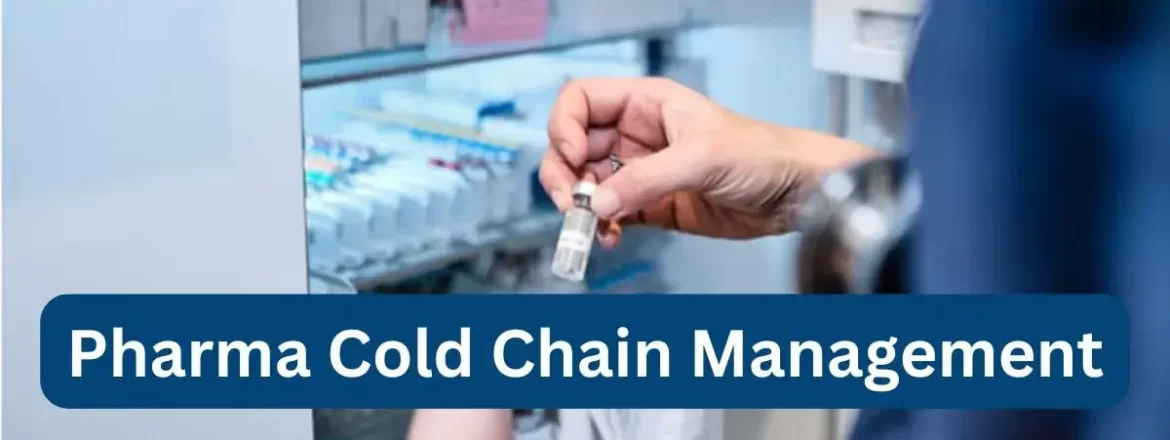🌡️The Importance of Temperature in Pharmaceuticals
In the world of pharmaceuticals, temperature is far more than a number—it’s a fundamental safeguard of drug efficacy, patient safety, and regulatory compliance. Whether it’s a life-saving vaccine, a cancer treatment, or insulin for diabetics, the effectiveness of these products hinges on maintaining the correct temperature throughout their lifecycle.
The pharmaceutical cold chain—a highly specialized logistics system—plays a silent but crucial role in global health, especially as medical innovation advances and therapies become more temperature-sensitive. Here’s why temperature control matters more than ever—and why professional pharma logistics is no longer optional.

1. Ensuring Product Integrity
– Potency and stability: Many modern drugs, particularly biologics, vaccines, and gene therapies, are biologically or chemically fragile. Even minor temperature fluctuations can alter their molecular structure, compromising their potency or causing irreversible degradation.
– Degradation risks: Heat or freezing can lead to the formation of harmful by-products, loss of active ingredients, or separation of emulsions. These physical and chemical changes render the medication not only ineffective but potentially dangerous to patients.
2. Preventing Temperature Excursions
– Instant consequences: A temperature excursion—defined as any deviation from the required storage range—can have immediate and irreversible effects. For instance, certain mRNA-based vaccines must be stored at ultra-low temperatures (as low as -70°C). A brief exposure to higher temperatures can destroy their efficacy.
– Global wastage: According to the World Health Organization, up to 50% of vaccines are wasted every year due to poor temperature control. These losses not only translate into financial cost but also missed opportunities for disease prevention, particularly in underserved regions.
3. Economic Impacts
– Massive financial losses: The pharmaceutical industry incurs over $35 billion annually due to failures in temperature-controlled logistics. These include product spoilage, recalls, reshipping costs, and loss of customer trust.
– Regulatory and reputational risks: When temperature control is mishandled, companies face legal penalties and damage to brand reputation. For high-value drugs like oncology or rare disease treatments, a single spoiled shipment can mean millions lost.
4. Regulatory Compliance
– Global guidelines: Regulatory bodies such as the U.S. FDA, European Medicines Agency (EMA), and World Health Organization (WHO) impose strict standards for temperature-controlled pharmaceutical handling through GMP (Good Manufacturing Practices) and GDP (Good Distribution Practices).
– Defined storage mandates:
- Standard cold chain: 2°C–8°C for most vaccines and antibiotics
- Frozen chain: –15°C to –25°C for some serums and plasma products
- Ultra-low: –70°C for mRNA vaccines and cellular therapies
Non-compliance isn’t just a breach of protocol—it can result in product bans or shipment refusals at customs.
🚚 Why Temperature Demands Professional Pharma Logistics
Temperature management in pharma is not a generic logistics challenge—it requires tailored expertise and infrastructure. Professional pharma logistics providers offer:
✅ Specialized Equipment
- Refrigerated trucks, thermal blankets, cold rooms, and portable freezers
- Advanced cooling agents like gel packs, dry ice, and phase-change materials
- Real-time temperature monitors and IoT data loggers for proactive alerts
These tools ensure that from production site to patient bedside, pharmaceutical integrity is never compromised.
✅ Trained Personnel
- Logistics staff trained specifically in GDP-compliant cold chain handling
- Rapid-response teams for temperature deviation incidents
- Understanding of customs and quarantine regulations across borders
✅ End-to-End Visibility
- Cloud-based platforms for real-time tracking and temperature audit trails
- Integration with warehouse management systems (WMS) and transport management systems (TMS)
- Full traceability from manufacturer to end-user for audit and recall readiness
Only with this level of operational discipline can pharmaceutical companies meet both safety standards and market expectations.
❄️ Cold Chain Infrastructure & Monitoring Solutions
A “cold chain” refers to a temperature-controlled supply chain network that ensures consistent and safe handling from manufacturer to patient.
Temperature-Controlled Warehousing
- Cold rooms and deep freezers compliant with international pharma standards
- Backup generators and alarm systems to maintain temperatures during power outages
- Segregated zones for different product categories and temperature ranges
Smart Packaging & Transportation
- Insulated shippers, pallet covers, and vacuum-insulated panels
- Temperature-controlled containers (active or passive)
- Pre-qualified packaging solutions that maintain temperatures for up to 120 hours
These innovations reduce human error and protect high-value cargo over long journeys, including air freight and multimodal transport.
🧩Pharma Logistics is the Guardian of Global Health
In today’s pharmaceutical landscape, where personalized medicine, biologics, and global vaccine programs are rapidly expanding, temperature control is the backbone of safety and efficiency.
➡️ A minor lapse in logistics can mean a failed treatment, delayed patient recovery, or even loss of life.
➡️ On the other hand, robust pharma logistics ensures that life-saving medications arrive intact, on time, and fully potent—every time.
👉 For manufacturers, healthcare systems, and patients alike, investing in professional pharmaceutical logistics is no longer a choice—it’s a strategic necessity.



